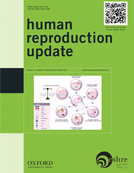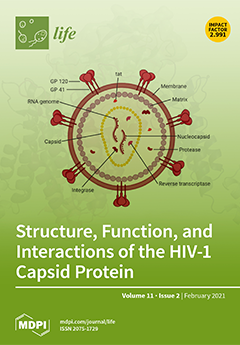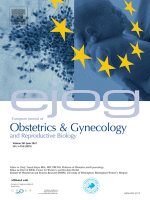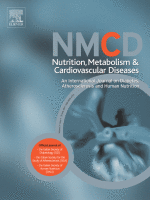Saturated Fats
How to submit an article:
- Registered users can submit any published journal article that has a unique DOI (Digital Object Identifier) name or link to Research Hub.
- For example, you can paste the full DOI link:
https://doi.org/10.1109/5.771073or just the DOI name:10.1109/5.771073into the field above and click submit. - The person who is first to submit a valid article to Research Hub will forever be credited for it, and every article submission earns you +6 Research Points.
Published research studies are articles that present the findings of original research that has undergone a peer-review process and has been made publicly available in scholarly journals, books or other media.

Assessing the influence of preconception diet on female fertility: a systematic scoping review of observational studies
2023 Jul 19 Human Reproduction Update Alesi S, Habibi N, Silva TR, Cheung N, Torkel S, Tay CT, et al.
Review Article Female Fertility Saturated Fats Trans Fats Mediterranean DietThe Mediterranean diet and reduced intake of trans fatty acids, saturated fatty acids, and discretionary foods like fast food and sugar-sweetened beverages may improve fertility rates.

The Role of Dietary Fats in the Development and Treatment of Endometriosis
2023 Feb 27 Life Marcinkowska A, Górnicka M
Cohort Study Dietary FatsMonounsaturated fats, omega-3 polyunsaturated fatty acids, and a suitable eicosapentaenoic acid to arachidonic acid ratio can be used in diet therapy to improve quality of life by reducing pain and inflammation.

Omega-3 fatty acids dietary intake for oocyte quality in women undergoing assisted reproductive techniques: A systematic review
2022 Aug European Journal of Obstetrics & Gynecology and Reproductive Biology Abodi M, De Cosmi V, Parazzini F, Agostoni C
Systematic Review Embryo Quality Female Fertility Omega-3 Fatty AcidsIncreased intake of omega-3 can enhance the quality of oocyte and embryo, thereby potentially improving the success rate of assisted reproductive techniques.

The effects of foods on LDL cholesterol levels: A systematic review of the accumulated evidence from systematic reviews and meta-analyses of randomized controlled trials
2021 May Nutrition, Metabolism and Cardiovascular Diseases Schoeneck M, Iggman D
Systematic Review Turmeric Walnut Avocado Tumeric Almond Green Tea Tomato FlaxseedConsumption of certain foods like rapeseed/canola oil, avocados, and turmeric can lead to moderate to large reductions in LDL cholesterol levels.

The effects of Canola oil on cardiovascular risk factors: A systematic review and meta-analysis with dose-response analysis of controlled clinical trials
2020 Nov Nutrition, Metabolism and Cardiovascular Diseases Amiri M, Raeisi-Dehkordi H, Sarrafzadegan N, Forbes SC, Salehi-Abargouei A
Canola oil (CO) significantly reduced total cholesterol, low-density lipoprotein cholesterol (LDL-C), LDL-C to high-density lipoprotein cholesterol ratio (LDL/HDL), total cholesterol to HDL ratio (TC/HDL), apolipoprotein B (Apo B), and Apo B/Apo A-1 compared to other edible oils, including olive oil, sunflower oil, and saturated fats. Replacing CO with ~15% of total caloric intake provided the greatest benefits based on the nonlinear dose–response curve.
Systematic Review Meta-Analysis Canola OilResearch insights are moderated by the Research Hub team and offer an at-a-glance overview of interesting research findings.

2023 Human Reproduction Update
The Mediterranean diet and reduced intake of trans fatty acids, saturated fatty acids, and discretionary foods like fast food and sugar-sweetened beverages may improve fertility rates.
Review Article Female Fertility Mediterranean Diet Trans Fats
Assessing the influence of preconception diet on female fertility: a systematic scoping review of observational studies
Alesi S, Habibi N, Silva TR, Cheung N, Torkel S, Tay CT, et al.

2023 Life
Monounsaturated fats, omega-3 polyunsaturated fatty acids, and a suitable eicosapentaenoic acid to arachidonic acid ratio can be used in diet therapy to improve quality of life by reducing pain and inflammation.
Cohort Study Dietary Fats
The Role of Dietary Fats in the Development and Treatment of Endometriosis
Marcinkowska A, Górnicka M

2022 European Journal of Obstetrics & Gynecology and Reproductive Biology
Increased intake of omega-3 can enhance the quality of oocyte and embryo, thereby potentially improving the success rate of assisted reproductive techniques.
Systematic Review Embryo Quality Female Fertility Omega-3 Fatty Acids
Omega-3 fatty acids dietary intake for oocyte quality in women undergoing assisted reproductive techniques: A systematic review
Abodi M, De Cosmi V, Parazzini F, Agostoni C

2021 Nutrition, Metabolism and Cardiovascular Diseases
Consumption of certain foods like rapeseed/canola oil, avocados, and turmeric can lead to moderate to large reductions in LDL cholesterol levels.
Systematic Review Almond Avocado Flaxseed Green Tea Tomato
The effects of foods on LDL cholesterol levels: A systematic review of the accumulated evidence from systematic reviews and meta-analyses of randomized controlled trials
Schoeneck M, Iggman D
Review Articles
Review articles summarise and critically evaluate the current state of research on a specific topic or field by synthesising multiple primary research studies.

Assessing the influence of preconception diet on female fertility: a systematic scoping review of observational studies
2023 Jul 19 Human Reproduction Update Alesi S, Habibi N, Silva TR, Cheung N, Torkel S, Tay CT, et al.
Review Article Female Fertility Saturated Fats Trans Fats Mediterranean DietThe Mediterranean diet and reduced intake of trans fatty acids, saturated fatty acids, and discretionary foods like fast food and sugar-sweetened beverages may improve fertility rates.

Omega-3 fatty acids dietary intake for oocyte quality in women undergoing assisted reproductive techniques: A systematic review
2022 Aug European Journal of Obstetrics & Gynecology and Reproductive Biology Abodi M, De Cosmi V, Parazzini F, Agostoni C
Systematic Review Embryo Quality Female Fertility Omega-3 Fatty AcidsIncreased intake of omega-3 can enhance the quality of oocyte and embryo, thereby potentially improving the success rate of assisted reproductive techniques.

The effects of foods on LDL cholesterol levels: A systematic review of the accumulated evidence from systematic reviews and meta-analyses of randomized controlled trials
2021 May Nutrition, Metabolism and Cardiovascular Diseases Schoeneck M, Iggman D
Systematic Review Turmeric Walnut Avocado Tumeric Almond Green Tea Tomato FlaxseedConsumption of certain foods like rapeseed/canola oil, avocados, and turmeric can lead to moderate to large reductions in LDL cholesterol levels.

The effects of Canola oil on cardiovascular risk factors: A systematic review and meta-analysis with dose-response analysis of controlled clinical trials
2020 Nov Nutrition, Metabolism and Cardiovascular Diseases Amiri M, Raeisi-Dehkordi H, Sarrafzadegan N, Forbes SC, Salehi-Abargouei A
Canola oil (CO) significantly reduced total cholesterol, low-density lipoprotein cholesterol (LDL-C), LDL-C to high-density lipoprotein cholesterol ratio (LDL/HDL), total cholesterol to HDL ratio (TC/HDL), apolipoprotein B (Apo B), and Apo B/Apo A-1 compared to other edible oils, including olive oil, sunflower oil, and saturated fats. Replacing CO with ~15% of total caloric intake provided the greatest benefits based on the nonlinear dose–response curve.
Systematic Review Meta-Analysis Canola OilClinical Trials
Clinical trials are research studies that involve people and are conducted to evaluate the safety and efficacy of new treatments or interventions, such as drugs, medical devices, or behavioural therapies.
Study Protocols
Published study protocols are detailed plans that outline the objectives, methodology, statistical analyses, and organisation of a research study that have been made publicly available for others to review and use as a reference.
Presentation Slides

Review Article
The Mediterranean diet and reduced intake of trans fatty acids, saturated fatty acids, and discretionary foods like fast food and sugar-sweetened beverages may improve fertility rates.
Alesi S, Habibi N, Silva TR, Cheung N, Torkel S, Tay CT, Quinteros A, Winter H, Teede H, Mousa A, Grieger JA, Moran LJ

Cohort Study
Monounsaturated fats, omega-3 polyunsaturated fatty acids, and a suitable eicosapentaenoic acid to arachidonic acid ratio can be used in diet therapy to improve quality of life by reducing pain and inflammation.
Marcinkowska A, Górnicka M

Systematic Review
Increased intake of omega-3 can enhance the quality of oocyte and embryo, thereby potentially improving the success rate of assisted reproductive techniques.
Abodi M, De Cosmi V, Parazzini F, Agostoni C

Systematic Review
Consumption of certain foods like rapeseed/canola oil, avocados, and turmeric can lead to moderate to large reductions in LDL cholesterol levels.
Schoeneck M, Iggman D
Executive Summary
Write an executive summary in the form of a blog article on the topic of "Research into Chinese medicine treatment for Saturated Fats" summarising the research below and using language that can be easily understood by patients and avoiding medical jargon using a professional and caring tone of voice.
Write an executive summary in the form of a blog article on the topic of "Researched Chinese medicine treatments for Saturated Fats" summarising the research below in an objective and easy to understand way, and using language that can be easily understood by patients. Group the article into Chinese medicine treatments first, followed by nutrition and other treatments. Avoid using medical jargon and use a professional and caring tone of voice.
Write me a concise but easy to understand executive summary on the topic of "Chinese medicine treatments for Saturated Fats" based on the following research that I will give you. Your summary should be 2 paragraphs long in Australian English spelling and include references to the studies.
A Review Article published in 2023 in the journal Human Reproduction Update found that The Mediterranean diet and reduced intake of trans fatty acids, saturated fatty acids, and discretionary foods like fast food and sugar-sweetened beverages may improve fertility rates. This title represents a systematic scoping review of four electronic databases, namely Medline and EMBASE via Ovid Processing, CAB Direct, and CINAHL via EBSCO. The researchers included observational works, consisting of prospective and retrospective cohort, cross-sectional, and case-control studies, up to September 27, 2021. The criteria for study inclusion were women of reproductive age in the preconception stage who were examined for the connection between preconception diet and fertility outcomes. From the total of 36 studies that were found eligible for review, the one diet that stood out with the most significant and consistent association with increased clinical pregnancy rates was the Mediterranean diet. Dietary factors such as reducing trans fatty acids, saturated fatty acids, and discretionary food intake, which includes fast food and sugar-rich drinks, were found to lead to an improvement in live birth, clinical pregnancy rates, and associated ART outcomes. However, this study also found that elements like seafood, dairy, and soy showed varying findings across a few studies. Despite the mixed results, it was noted that following some of these dietary regulations, notably Mediterranean diet, shows consistency with healthy eating guidelines, implying potential benefits in fertility.
A Cohort Study published in 2023 in the journal Life found that Monounsaturated fats, omega-3 polyunsaturated fatty acids, and a suitable eicosapentaenoic acid to arachidonic acid ratio can be used in diet therapy to improve quality of life by reducing pain and inflammation. The risk of endometriosis may increase with a higher consumption of products rich in saturated fats, especially palmitic acid and trans-unsaturated fatty acids. Monounsaturated fats and omega-3 polyunsaturated fatty acids may likely be connected with a lower risk of developing endometriosis and with reductions in the severity of disease.
A Systematic Review published in 2022 in the journal European Journal of Obstetrics & Gynecology and Reproductive Biology found that Increased intake of omega-3 can enhance the quality of oocyte and embryo, thereby potentially improving the success rate of assisted reproductive techniques. The systematic review was conducted adhering to the PRISMA 2020 statement and the procedure was registered with PROSPERO. Women who were undergoing assisted reproductive techniques such as in vitro fertilisation or intracytoplasmic sperm injection, and whose diets were evaluated for omega-3 intake, were the focal point. The analysis looked at women who had an increased omega-3 intake compared to women undergoing the same procedures without an increased omega-3 intake prior to the cycle. A wide range of literature was reviewed, selecting five relevant studies which consisted a large number of records. The results of these five studies show a beneficial effect of omega-3 fats on the success rate of assisted reproductive outcomes. This is primarily illustrated by an increase in the quality of both the oocyte and the embryo, recognised through enhanced morphological and morphokinetic parameters. While the studies viewed varied in specifics, all pointed to the optimistic impact of increasing omega-3 intake in women seeking pregnancy through assisted methods.
A Systematic Review published in 2021 in the journal Nutrition, Metabolism and Cardiovascular Diseases found that Consumption of certain foods like rapeseed/canola oil, avocados, and turmeric can lead to moderate to large reductions in LDL cholesterol levels. The research was carried out by conducting a systematic evaluation of existing guidelines, systematic reviews, and Randomised Control Trials (RCTs); we have only referred to the latter for studies on coffee intake. This was done on databases such as PubMed, Cochrane Database of Systematic Reviews, and Cochrane Central Register of Controlled Trials, alongside a search on the Trip database for guidelines. The time frame for the study was from its inception up until June 2019 and October 2019 respectively. Studies were included if they were at least 13 days in duration and were in English. Using the Grading of Recommendations Assessment, Development, and Evaluation (GRADE) method, 37 guidelines, 108 systematic reviews, and 20 RCTs were evaluated to analyze the strength of evidence in the context of food impacts on LDL cholesterol levels. The results of the research reveal that foods high in unsaturated and low in saturated and trans fatty acids such as rapeseed or canola oil, those with added plant sterols/stanols, and those high in soluble fibre like oats, barley and psyllium cause moderate reductions in LDL cholesterol. A moderate to a large increase was observed with unfiltered coffee though. Soy protein, tomatoes, flaxseeds, and almonds cause small reductions. Meanwhile, foods like avocados and turmeric cause moderate to large reductions with a moderate level of evidence supporting this observation. Other foods like pulses, hazelnuts, walnuts, high-fiber/wholegrain foods, green tea result in small to moderate reductions, and sugar causes a small increase. Several foods identified were either neutral or had low or very low evidence regarding their effects on LDL cholesterol levels.
Moderation Tools
Topic
Sign In
Users not signed in are limited to viewing the 5 most recent items of content.